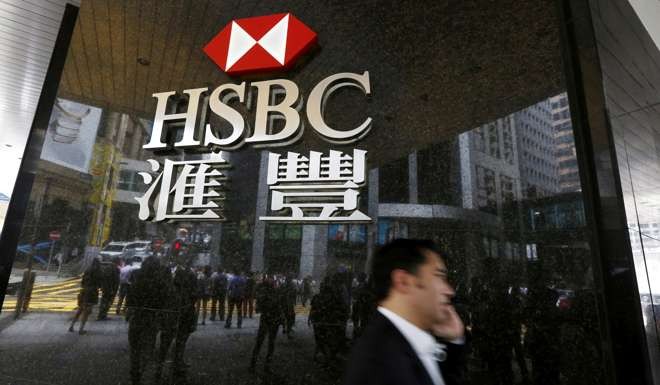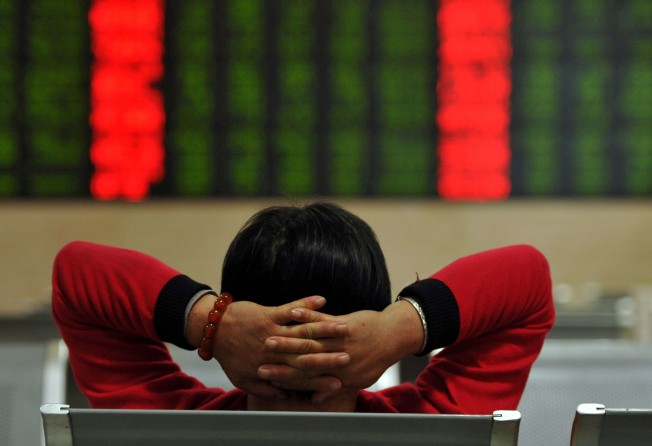
Momentum plays and stocks to avoid in the new world of rising US interest rates
Financial stocks could perform well, while Hong Kong property and utilities sectors may run into trouble

Hong Kong and Chinese stock markets weren’t taken by surprise at the first US interest rate rise in a year on Thursday, but they could face sustained pressure from cash withdrawals in the medium to longer term due to Fed-induced dollar strengthening, analysts said.
Specifically, the impact of rising US rates on sectors is mixed – financial stocks should flourish thanks to improved interest margins, while Hong Kong property and utilities sectors may run into trouble.
The Federal Reserve decided on Thursday to increase the benchmark Fed funds rate by 25 basis points (bps) to a range between 0.50 per cent and 0.75 per cent, the first rate increase in a year. The Fed also raised the interest rate by 25 bps last December, the first time since 2006, and was expected to tighten monetary policy further in 2016. However, weak global growth and financial market volatility had kept any move by the US central bank on hold until US growth began to pick up after mid-2016.
“This time, investors had adequate expectations about the US rate hike. So various USD short-term rates and exchange rates have largely priced in the move in advance,” said Chen Zhizhong, an analyst for Everbright Securities.
“The early adjustment helps to relieve pressure for the market before the rate hike happens. So we think Hong Kong stock markets will react relatively calmly after the hike in the near term, despite some small fluctuations,” Chen said.
“However, that doesn’t mean the pressure is fully released. Emerging markets and non-USD assets will be put to a serious test due to the anticipated cash withdrawals,” he added.
The Fed’s rate increase should also have limited immediate impact on China’s A-share markets as investors have widely expected that move, said Song Yiwei, an analyst for Bohai Securities.

By sector, financial stocks should flourish after the US rate increase as lenders will see higher profits due to widening net interest margins, while also benefiting from a reflationary environment and loosening regulations from the incoming Trump administration, said analysts from China Merchants Bank International (CMBI) in a recent research note.
Among Hong Kong-listed international banks, HSBC Holdings and Standard Chartered should see a bigger boost from the Fed’s rate rise as they both have a significant portion of revenues from the US and Hong Kong.
However, Hong Kong property and utilities stocks could run into trouble after the Fed tightens monetary policy, CMBI analysts said.
Hong Kong’s interest rate typically moves in line with the US rate because the Hong Kong dollar is pegged to the greenback.
Higher interest rates usually make consumers less enthusiastic about buying houses as the mortgage burden becomes heavier.

Besides property, the utilities sector will be adversely affected by rising interest rates as borrowing costs will climb for utilities companies, which usually have high debt levels.
Higher interest rates also make it less attractive to buy utilities stocks – which have steady dividends – compared to bonds that offer higher yields in a rising rate environment.
Macquarie Research analysts recently advised investors to be cautious with Hong Kong-listed CLP Holdings and The Hong Kong and China Gas Company, as the two stocks may be affected the most among utilities as a result of rising US rates.
Gold-related stocks have been under pressure recently due to expectations of rising US interest rates, as higher rates make the US dollar more attractive to investors, said Zhu Bin, an analyst from Southwest Securities.
However, he expects interest rates in other parts of the world to remain at low levels to stimulate economic growth, which should bode well for gold prices in the long run.
“We also expect the risk-off sentiment to remain largely in place in 2017, given the uncertainty about US fiscal and monetary polices in a Trump presidency,” Zhu said. “This is a good news for gold prices too.”
Zhu recommended Shanghai-listed Shandong Gold Mining, with a target price of 50 yuan in the next six months.